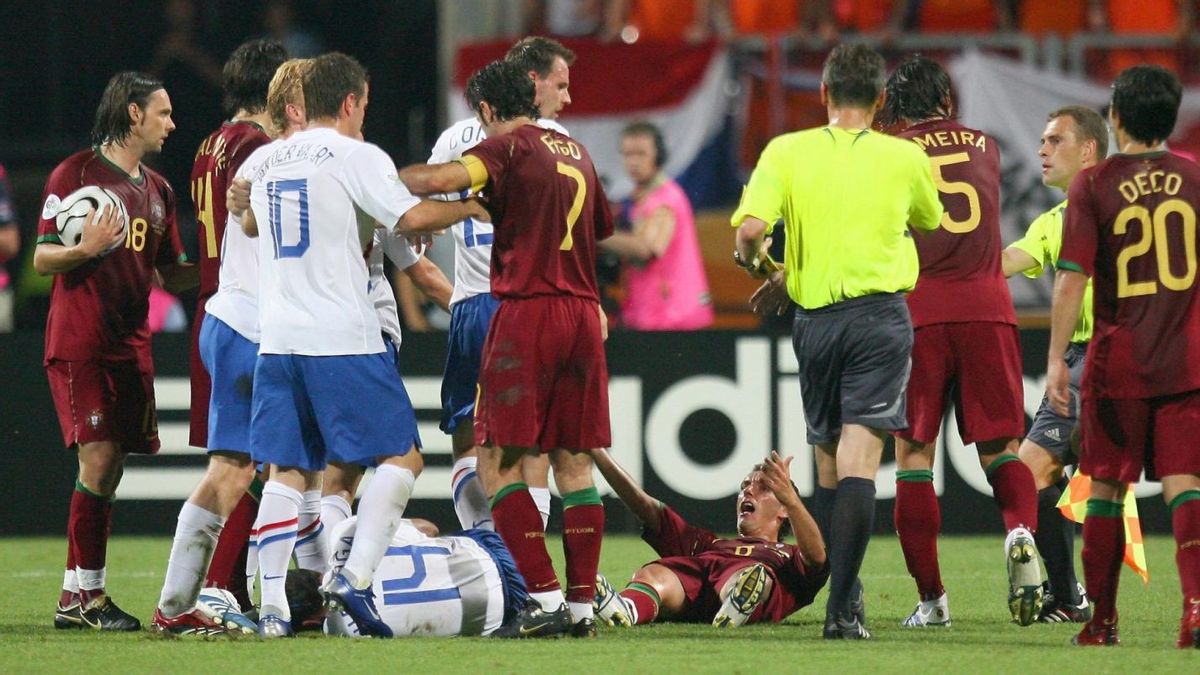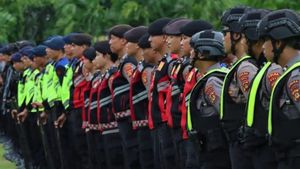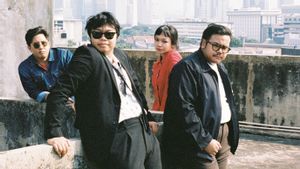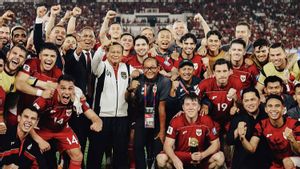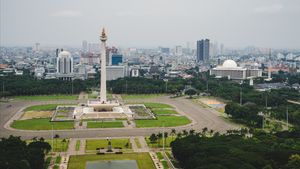JAKARTA - The Netherlands and Portugal were the seed teams at the 2006 World Cup in Germany. Both have qualified players and coaches. The group stage is easy for both to pass. The fate narrative also brought the two together in the round of 16 in Nuremberg, June 26, 2006.
Disaster appears. Both teams insisted. As a result, the referee had to issue 20 cards. A total of 16 yellow cards, and four red cards. Even though Portugal came out as the winner with a narrow score of 1-0. The match was later nicknamed the Battle of Nuremberg.
The presence of the 2006 World Cup in Germany has been eagerly awaited by the entire world's population. They want to see their favorite national team compete in Germany. Especially if his team can lift the trophy from the celebration once every four years.
That spirit was carried by the Dutch and Portugal. The two teams realized their team was superior in Germany's 2006 World Cup. Supporters from each team also provided maximum support. In fact, they were willing to come all the way to Germany to support the national team.
It was the trust of the supporters that made the two countries' confidence soar. The Netherlands, for example. The Dutch, who were trained by football legends, Marco van Basten, did not waste the opportunity. The first match to meet Serbia and Montenegro in the group phase was immediately bulldozed.
Serbia had to admit the superiority of the Netherlands with a score of 0-1. After that, Ivory Coast was forced to its knees with a score of 1-2. The Netherlands only got a 0-0 draw when they met Argentina. In the end, the Netherlands and Argentina had the same points. However, Argentina is superior in the number of goals that made him the leader of the standings, and the Netherlands as runners upgroup C.
Portugal's steps in the group round were no less smooth. Angola must recognize Portugal's strength 0-1. Portugal's second opponent is Iran. Portugal, coached by Luis Felipe Scolari, can lead 2-1 over Iran. And finally Portugal beat Mexico 2-1. Portugal also won Group D Portugal's defeat has been predicted. This is because the composition of Portuguese players who were brought to the 2006 World Cup in Germany is the golden generation.
Extended in Portugal's golden generation' with Rui Costa and Joao Pinto, Luis Figo has always longed for World Cup glory. They won the U-17 European Cup and U-20 World Cup, but can they continue and win the real thing? The nation has high hopes of Portugal never winning the World Cup, even during the kings'' erasbio.
Is this Portugal's best chance? Fourteen years after Eusebio, Portugal had another chance they with Luis Figo and their team-mates. From its golden generation, Figo was the last to stand. He is now the captain of his country. He is considered experienced. He is tasked with guiding the new generation of Portugal (including Cristiano Ronaldo) to victory," said Matt and Tom Oldfield in the bookFigo(2018).
The two were Portugal and Dutch then met in the round of 16 on June 26, 2006. The match took place at Max Morlock Stadium in the city of Nuremberg. Even the referee from Russia, Valentin Ivanov, who will lead the match. Ivanov at that time was known as a light referee who gave a card for each violation.
Heat pressure then colored the two teams. The yellow card rain alternately came. Especially after Portugal's attacking midfielder, Maniche scored in the 23rd minute. Cristiano Ronaldo, who is predicted to be the successor to Luis Figo's leadership, was forced to withdraw due to injury.
A total of 16 yellow cards came out of referee Ivanov and four red cards. Two red cards each for Portugal and the Netherlands. Those who get red cards include Portugal's attacking midfielder Costinha (minute 45) and Deco (minute 78).
While the Dutch players who got the red card were Khalid Bualahrouz (minute 62) and Giovanni van Bronckhorst (minute 90) who both played defenders. The hot match was finally won with a score of 1-0 for Portugal's advantage.
However, card rain events are not easily forgotten by all people of world football. They were also surprised by the harsh play presented. Many football fans call it like a battle. Therefore, people dubbed the match between Portugal and the Netherlands in the 2006 World Cup of Germany as the Battle of Nuremberg.
In a match that is known to be fierce against Portugal in Nuremberg, the Netherlands lost 0-1 against Portugal. The match resulted in 16 yellow cards and four red cards, so each side was forced to finish the match with only nine players.
Many sports watchers described the game as a night of chaos and chaos, sometimes allegedly as a complaint-packed night, while some of them dubbed the match as: The Battle of Nuremberg, "explained Ric Jensen in the book Legacys of Great Men in World Soccer: Heroes, Icons, Legends(2016).
The English, Chinese, Japanese, Arabic, and French versions are automatically generated by the AI. So there may still be inaccuracies in translating, please always see Indonesian as our main language. (system supported by DigitalSiber.id)
